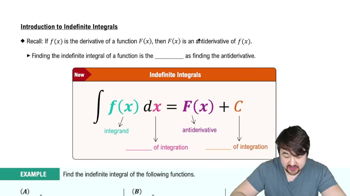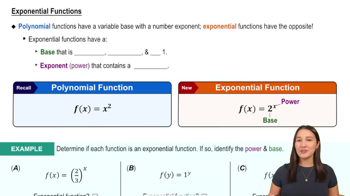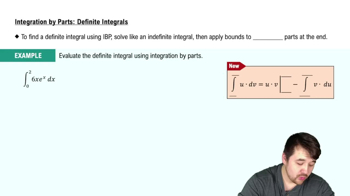Explain why or why not Determine whether the following statements are true and give an explanation or counterexample.
d. Using the substitution u = tan(x) in ∫ (tan²x / (tan x - 1)) dx leads to ∫ (u² / (u - 1)) du.
 Verified step by step guidance
Verified step by step guidance Verified video answer for a similar problem:
Verified video answer for a similar problem:



 5:04m
5:04mMaster Introduction to Indefinite Integrals with a bite sized video explanation from Patrick
Start learning